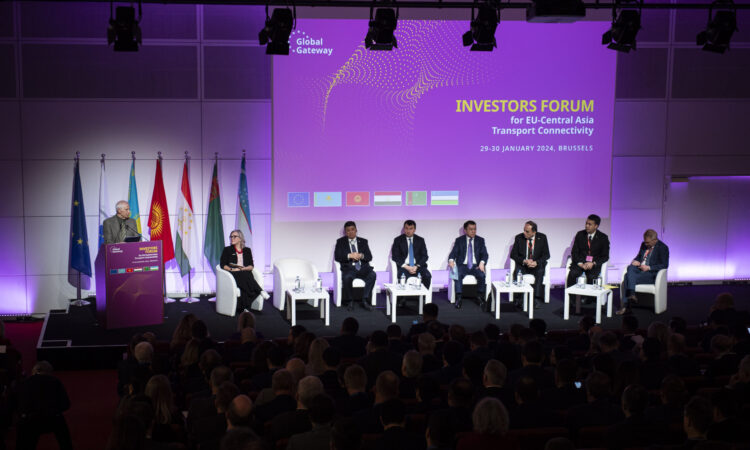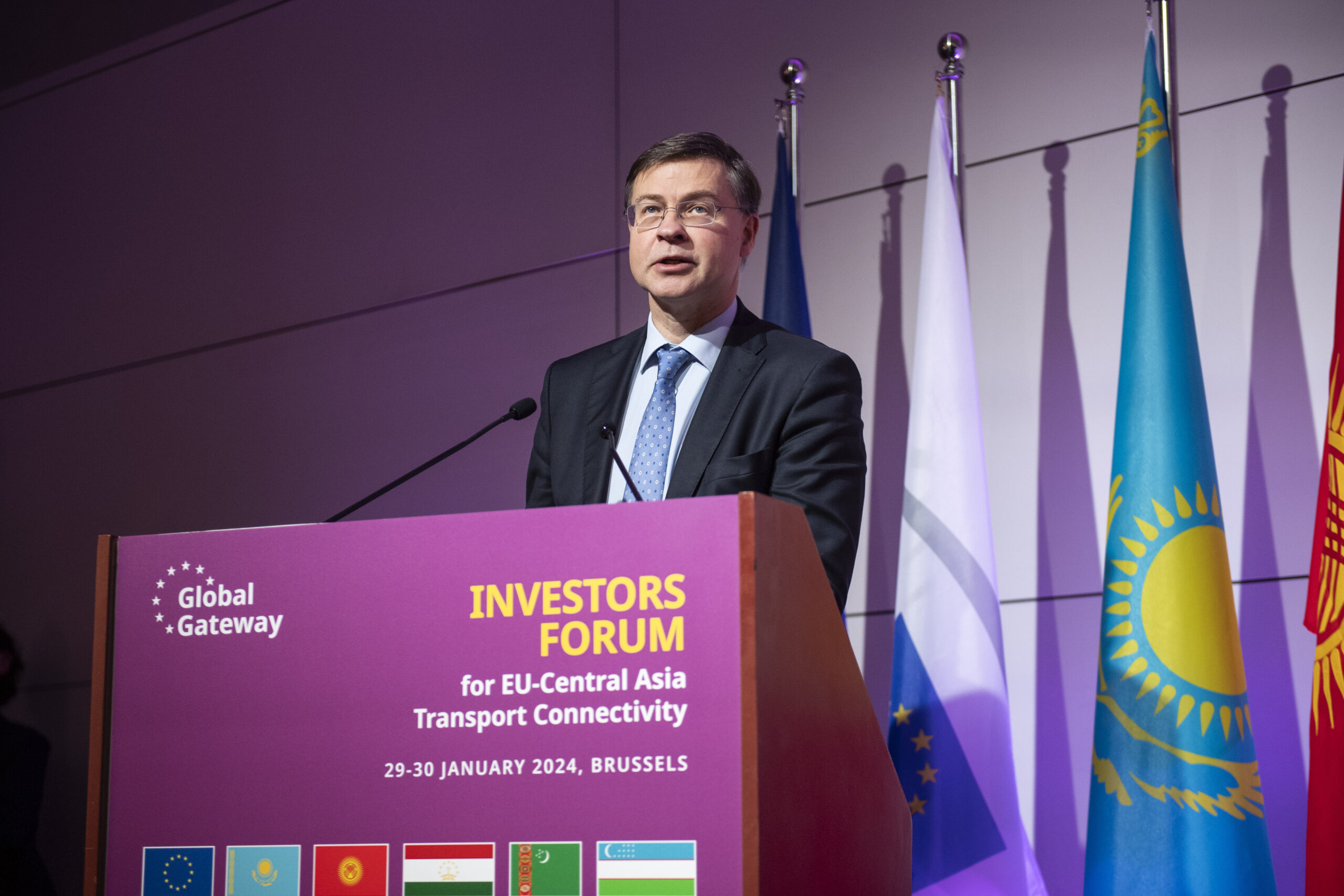
Brussels – New blood to the partnership between the EU and Central Asian countries. The five former satellites of the Soviet Union—Kazakhstan, Kyrgyzstan, Tajikistan, Turkmenistan, and Uzbekistan—look to Brussels and G7 partners, and return home from the first Global Gateway Investors Forum for EU-Central Asia Transport Connectivity with a commitment for 10 billion euros of investments to develop sustainable transport connectivity in Central Asia.
The Investor Forum brought together in the European capital high-level representatives from the European Commission, the EU member states, the five Central Asian countries, the Caucasus countries and Turkey, as well as the G7 countries, together with financial institutions, businesses, and civil society, to discuss the investments needed to transform the trans-Caspian transport corridor into a state-of-the-art, multimodal and efficient route linking Europe and Central Asia in no more than 15 days. A route on which up to 10 million tons of goods are transported annually, 200,000 containers of which are bound for Europe.
“I am very pleased to see that the international partners present today are committing to provide 10 billion euros of investment to develop sustainable transport connectivity in Central Asia, including new commitments from the European Commission and the European Investment Bank of 1.5 billion euros,” European Commission Executive Vice President Valdis Dombrovskis announced at the opening. The €10 billion commitment is a combination of ongoing and planned investments that the European Commission plans to mobilize in the short term for sustainable transport development in Central Asia. As Dombrovskis pointed out, EU countries already account for “more than 42 per cent of total foreign direct investment in Central Asia. More than the United States, Russia and China.”

Playing an important role in the financial package is the European Investment Bank (EIB), represented by Vice President Teresa Czerwińska, which has signed memoranda of understanding totalling €1.47 billion with the governments of Kazakhstan, Kyrgyzstan, Uzbekistan and the Development Bank of Kazakhstan. Not to be outdone, the European Bank for Reconstruction and Development (EBRD), will sign a memorandum of understanding with Kazakhstan for an investment plan worth €1.5 billion with projects already under preparation for the overall development of transport connectivity in the Central Asian region.
Directing investment is a study by the European Commission and the EBRD, which in June 2023 identified 33 infrastructure needs and 7 key soft connectivity actions, the implementation of which would greatly improve the operational efficiency and economic attractiveness of trans-Caspian transport networks.
Strengthening the partnership with the five Central Asian republics is part of the Global Gateway strategy, through which the EU wants to put up to €300 billion in public and private investment from 2021 to 2027 to develop new infrastructure in third countries. “In a world of growing uncertainties, closer partnerships are needed to address global challenges. Central Asia has become a crucial partner for the EU, thanks to its vast potential, particularly in terms of security and connectivity, as well as energy and resource diversification,” explained EU High Representative for Foreign Affairs Josep Borrell in his address to the Forum, because the invasion of Ukraine has underscored the urgency to find reliable and efficient alternative trade routes between Europe and Asia that do not pass through Russia. The trans-Caspian corridor represents the shortest existing route between Western China and Europe that avoids the use of the Russian rail network and the resulting sanctions imposed by the West against Moscow after the outbreak of war.
English version by the Translation Service of Withub






